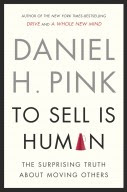Rereading George Orwell's 1946 essay Why I Write led me to wonder why I—or anyone—would blog.
"Putting aside the need to earn a living, I think there are four great motives for writing," Orwell says.
Writers want to boost their egos. Writers "desire to seem clever," Orwell says. They share this desire with "the whole top crust of humanity," including scientists, artists, politicians, lawyers, soldiers and businessmen.
Writers want to share their enthusiasm. Writers want to share their perceptions of the world and the pleasure they gain from "words and their right arrangement."
Writers want to record history. Writers hope "to see things as they are, to find out true facts and store them up for the use of posterity."
Writers want to change things. Writers "desire to push the world in a certain direction, to alter other peoples' idea of the kind of society that they should strive after."
In each writer's case, Orwell says, these motives will fluctuate from time to time; but you'll always find at least one of them driving the efforts.
"So long as I remain alive and well I shall continue to feel strongly about prose style, to love the surface of the earth, and to take a pleasure in solid objects and scraps of useless information," Orwell says. "It is no use trying to suppress that side of myself."
"So long as I remain alive and well I shall continue to feel strongly about prose style, to love the surface of the earth, and to take a pleasure in solid objects and scraps of useless information," Orwell says. "It is no use trying to suppress that side of myself."







